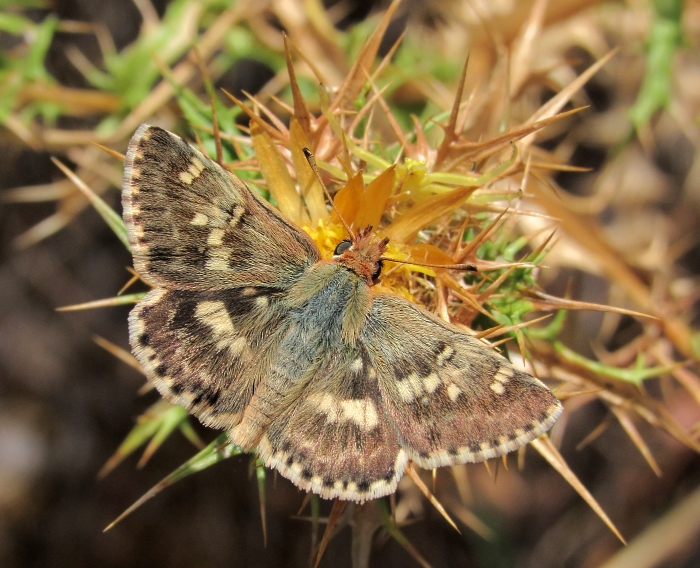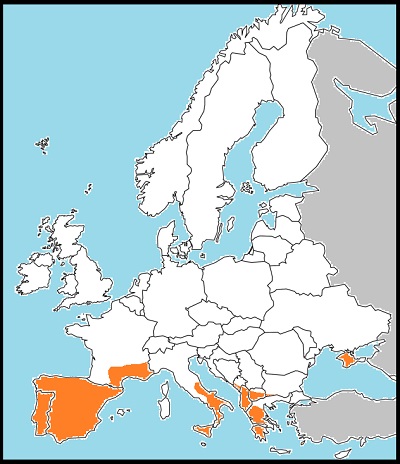
Male, Córdoba, July 2017

Male, Córdoba, July 2017

Male, Málaga, August 2020

Male, Málaga, July 2021

Male, Málaga, July 2021

Male, Córdoba, July
2017

Female, Córdoba, July 2017

Córdoba, July 2017

Gibraltar, 1983

Distribution
This is a common skipper of
Iberia, the
South of France and other parts of the Mediterranean region. I find it
in high summer in desiccated, grassy and thorny scrub, where it will
nectar even in the heat of the day. My first encounters with it were in
1983, when I lived in Gibraltar and saw it on many of the south-facing
slopes, including some of the garden regions in town. Around Córdoba in
July 2017, when temperatures were peaking at 48°C, it was the only
butterfly to be seen brazenly out in the midday sun, as it was in
Málaga in July 2020, both at sea level and up in the hills.
Muschampia
species are
characterised by the absence of white spots at the base of the trailing
edge of the underside hindwing. The white spots above this, towards the
costa, simply peter out as you move towards the trailing edge. In the
sage skipper, the underside hindwing is yellow-buff, though in other
European species - the tessellated skipper, Muschampia tessellum,
from the Balkans, and the spinose skipper, Muschampia cribellum,
from the Balkans, Hungary and Romania - it is more olive in tone. The
upperside of the sage skipper is liberally suffused with bright hairs,
giving a very characteristic appearance, and the upperside hindwing is
strongly marked, with a conspicuous central band.
Adults fly in a single, protracted generation from April to October.
Eggs are laid on various species of Phlomis. The sage
skipper hibernates either as an egg or as a larva.




















